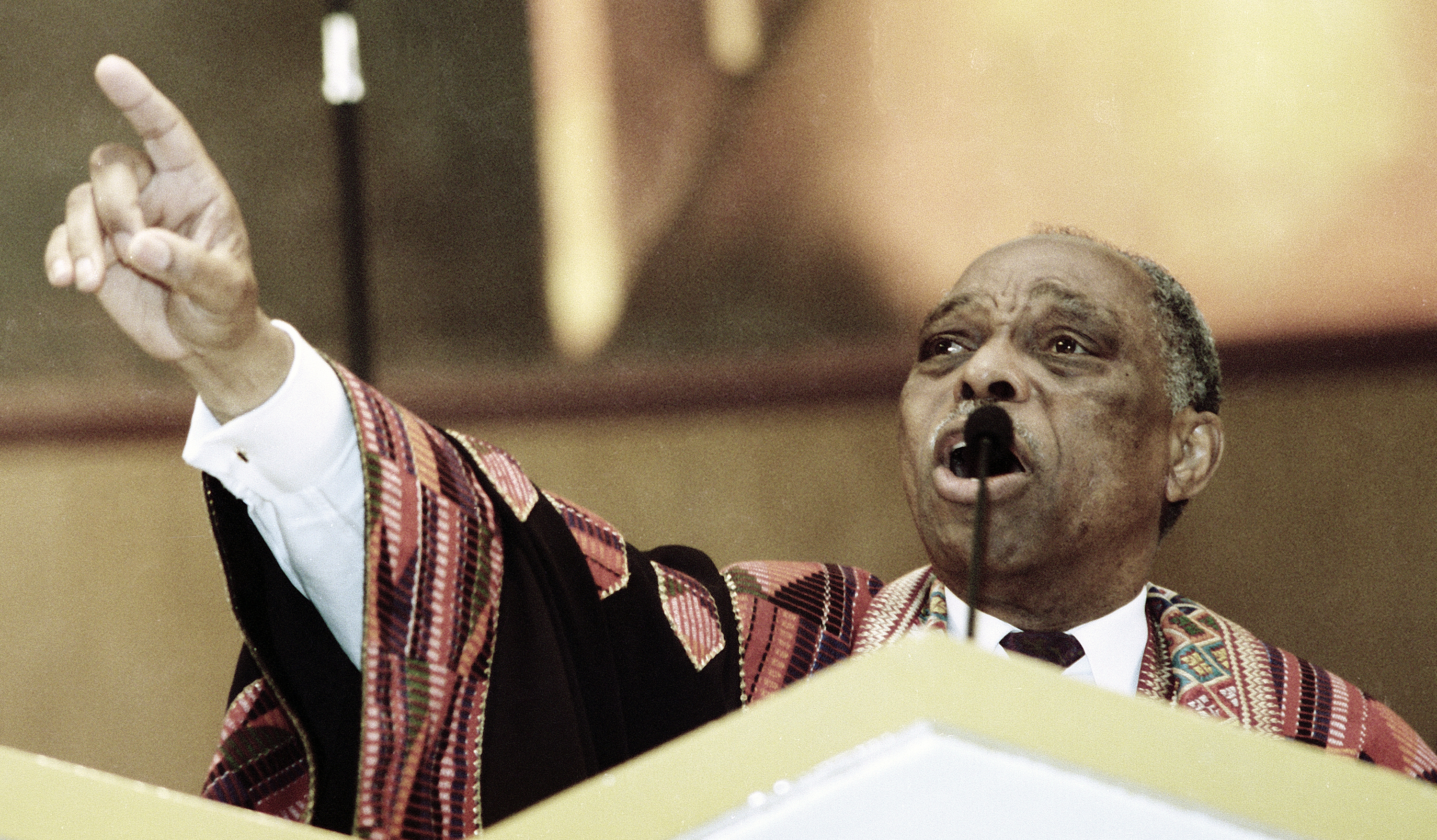SANTA ANA, Calif. -- A magistrate set bail at $500,000 Tuesday for a Tustin man accused by federal prosecutors of lying about familial links to terrorists but defended by supporters as a victim of harassment because he refused to become an informant.
In deciding whether to set bail for 34-year-old Ahmadullah Sais Niazi, U.S. Magistrate Arthur Nakazato commented that a person cannot chose one's relatives, but he also said he was "extremely troubled" by the statements of FBI Agent Thomas J. Ropel III, who testified that Niazi called Osama bin Laden "an angel."
Nakazato said Niazi had shown sympathy to "at least one organization deemed to be an enemy of the United States," but "on the other hand, I can't ignore the fact that he has been under investigation and has known he's under investigation for some time" and did not flee.
Nakazato said he wanted the bond money to come from family members who would be impacted if Niazi fled.
Family members stepped forward to put up $350,000 in cash, from equity in a house, as bail and offer whatever equity they had in two other homes, although that may not be much in light of the housing market freefall, Federal Deputy Public Defender Chase Scolnick said.
The family would try to raise the additional amount in cash, he said.
Niazi was ordered to submit to electronic monitoring when he is released and to surrender his passport.
He is scheduled to be arraigned March 2 on a five-count federal indictment that accuses him of lying on his naturalization application, procuring naturalization unlawfully, using a passport procured by fraud and making a false statement.
Niazi's wife said her husband could not hurt anyone.
"He could not be any harm to anybody -- to anybody on this Earth," said Jamilah Niazi outside the courthouse.
The charges accuse him of failing to disclose, when he applied for U.S. citizenship, that his brother-in-law was a security coordinator for bin Laden, that he lied about using another name and failed to disclose the true location of a trip in 2005 and whom he visited.
Scolnick denied the charges are serious.
"We're not dealing with a terrorist case," Scolnick said, characterizing it as "a document fraud case" that would result in about two years in prison if his client is convicted.
Niazi would revert to legal permanent resident status if convicted and would not be required to leave the country. He has no reason to flee, Scolnick argued.
Ropel testified that Niazi made statements to a confidential informant at an Irvine mosque where the two talked about jihad, blowing up buildings and sending money overseas.
The FBI agent said Niazi had instigated the conversations with the informant, who was posing as a convert to Islam and recorded the conversations.
In June 2007, Niazi and another man reported the man to the FBI, Ropel said, but "Mr. Niazi lied to us."
Niazi told the agents that jihad -- extremist Muslims' term for holy war -- was talked about one or two times when the recordings showed it was discussed on 15-20 occasions, Ropel said.
"You believe he was not truthful because he didn't tell you exactly the number of times they talked about jihad?" Scolnick asked.
Ropel alleged that Niazi also failed to disclose that the two talked about blowing up buildings and sending money overseas.
Asked if Niazi had stated more than once that he favored jihad, Ropel replied, "Absolutely."
The agent said he concluded that Niazi took the step of approaching the informant as a preventative measure.
"It is our understanding that they come forward to report individuals to exculpate themselves about what is going on," Ropel said.
Ropel said he was not at liberty to discuss the informant, but said it was an individual who had frequented "a few mosques."
Scolnick said some of the groups mentioned by the government as linked to the Tustin man were actually supported at one time by the United States.
"There's a large step between these groups and al-Qaida," Scolnick said.
Ropel responded that "Osama bin Laden was also once supported by the United States."
Assistant U.S. Attorney Deirdre Elliot said Niazi reported his contact with the informant two days after a plot was uncovered to blow up a tank farm at John F. Kennedy International Airport in New York.
Niazi was never linked to that plot, she said.
Nakazato asked if there was "anything to indicate that (Niazi reported the contact) based on a motive other than to turn somebody in," and Ropel replied, "That's beyond the scope of what I can answer today."
Scolnick argued that Niazi should be commended for stepping forward to report the individual, but instead became a victim of harassment himself.
Niazi has been jailed since Friday, when he was arrested by agents of the Orange County Joint Terrorism Task Force at his home at 13121 Charloma Drive.
Thom Mrozek of the U.S. Attorney's Office said Niazi faces up to 35 years in prison if convicted of all the charges against him.
According to an affidavit filed in support of a search warrant, Niazi, who was born in Kabul, Afghanistan, failed to reveal that his sister is married to Amin al-Haq, who has allegedly served as a bodyguard for bin Laden.
Niazi became a naturalized citizen on Nov. 5, 2004, when he legally changed his name from Ahmadullah Sais to Ahmadullah Sais Niazi. Among the allegations in the indictment is that he failed to reveal he previously had used the name Ahmadullah Khan.
A search warrant unsealed Friday alleges that, based on seized documents, Niazi and his wife used a "hawala," an unlicensed money transfer system often relied on by people from Afghanistan and Pakistan to transfer money from one country to another. That system can be used legitimately, but it is also exploited by those seeking to avoid U.S. regulations regarding
financial remittances, according to the search warrant.
Hussam Ayloush, executive director of the Greater Los Angeles Chapter of the Council of American-Islamic Relations, told reporters after the bail hearing that CAIR is filing a request for U.S. Attorney General Eric Holder to launch an investigation into Niazi's arrest.
According to CAIR, Niazi insists the charges are in retaliation for his refusal to become an FBI informant.
"Mr. Niazi previously reported to CAIR-LA and other community members that, during a raid of a friend's house, an FBI agent urged Mr. Niazi to work with the agency, saying that if he refused to cooperate, his life would be made
a living hell," a CAIR statement says.
In the letter to Holder, Ayloush wrote, "Many similar incidents have been reported to our office. This apparently retaliatory persecution is a reality that many American Muslims are forced to face."
Ayloush said he could not speak to the case specifically, other than "to deal with the civil rights of the defendant."
"Nobody wants to be a snitch," he said. "No one wants to be manipulated."
Read: Ahmadullah Sais Niazi Indictment (PDF)
Local
Get Los Angeles's latest local news on crime, entertainment, weather, schools, COVID, cost of living and more. Here's your go-to source for today's LA news.



